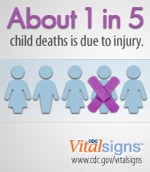There they were, my Green Bay Packers, getting close to the end zone and scaring the New England Patriots because a touchdown would have put the Packers in the lead. Then Matt Flynn's pass was tipped...
Readers, I hear your questions. "Matt Flynn? Daisy, what are you talking about? Aaron Rodgers was the starting quarterback for the fantastic Green Bay Packers. Rodgers, not Flynn, was the MVP in that incredible Super Bowl win!"
Yes, readers. Aaron Rodgers, starting quarterback, had been hit hard in the helmet the previous week - hard enough to suffer a concussion. He hadn't recovered sufficiently to be cleared to play, so Matt Flynn, his back-up, started in his place.
Concussion is the term for an injury: an injury to the brain. When the brain is shaken, spun, or suffers a blow (such as a blow to the football helmet), it moves rapidly - too rapidly - inside the skull. Symptoms of concussion vary, but some key signs of a concussion are:
- appears dazed or confused
- can't remember events immediately after or prior to the hit or fall
- double or blurry vision
- concentration or memory problems
- any change in the athlete's thinking, behavior, or physical functioning
I didn't list loss of consciousness, although even a momentary loss of consciousness is one of the most common clues that a concussion has occurred, because a concussion doesn't always result in blacking out. It's not safe to assume that a young athlete is "fine" because he or she didn't see stars or pass out. Even a "bell-ringer" or a "ding" to the brain can be serious.
In fact, my caution list is woefully short. Since many young children play under inexperienced or untrained coaches, parents shoulder the burden of watching over their children's safety.
Aaron Rodgers had the entire Packers' training staff examining and treating him, including doctors and physical therapists and professionally trained coaches. Young athletes don't have that advantage. The CDC has several resources aimed at coaches, teachers & school personnel, and parents.
If the Super Bowl MVP can miss a game in order to recover from a concussion, anyone can. It's better to miss one game than the whole season.

 Stumble It!
Stumble It!

 Stumble It!
Stumble It!




1 Comments:
I have a friend who ignored her concussions and now has permanent brain damage. It's so scary. If you even THINK you might have one, you need to REST!
Post a Comment
<< Home